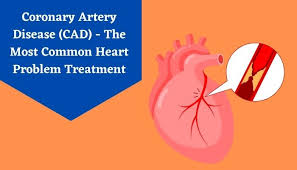Introduction
Cardiovascular breakdown, a steady condition described by the heart's decreased capacity to siphon blood successfully, represents a huge danger to worldwide wellbeing, influencing millions around the world. While a total fix may not generally be reachable, powerful safeguard measures can especially lessen the gamble of creating cardiovascular breakdown and further develop by and large heart wellbeing. Understanding Cardiovascular breakdown is vital-it doesn't mean a total suspension of heart capability yet rather focuses to an impedance in the heart's capacity to proficiently siphon blood. Factors, for example, coronary supply route sickness, hypertension, valve problems, and past cardiovascular failures add to this condition, steadily debilitating the heart muscle and undermining its siphoning effectiveness. Perceiving side effects early, like mindedness, constant hacking, weariness, expanding in the legs and mid-region, and quick weight gain, is essential for brief mediation and compelling treatment.
Preventative
Measures
1.
Maintain
a Healthy Lifestyle. Fundamental to preventing heart
failure is embracing a healthy lifestyle. This includes adhering to a balanced
diet rich in fruits, vegetables, whole grains, lean proteins, and low-fat dairy
products. Regular physical activity is essential, aiming for at least 150
minutes of moderate-intensity exercise per week, such as brisk walking,
cycling, or swimming. Additionally, quitting smoking and limiting alcohol
intake are recommended lifestyle changes.
2.
Manage
Chronic Conditions. Effectively
managing conditions like high blood pressure, diabetes, and cholesterol levels
is vital. Lifestyle modifications and, if necessary, medications should be
employed to control these conditions and reduce the risk of heart failure.
3.
Regular
Health Check-ups. Scheduling routine check-ups with
healthcare providers to monitor blood pressure, cholesterol levels, and overall
heart health is crucial. Early detection of potential issues allows for timely
intervention and can mitigate the progression of heart failure.
4.
Maintain
a Healthy Weight. Obesity is a significant risk factor for
heart failure. Achieving and sustaining a healthy weight can alleviate strain
on the heart and improve overall cardiovascular health.
5.
Limit
Sodium Intake. Excessive
sodium intake can contribute to fluid retention and elevated blood pressure.
Reducing salt consumption by avoiding processed foods and choosing lower-sodium
alternatives in meals can be beneficial.
6.
Manage
Stress. Chronic stress can
adversely affect heart health. Practicing stress-reducing activities such as
meditation, yoga, or deep breathing exercises can help mitigate this risk.
7.
Compliance
with Medications. Adhering to prescribed medications for
existing conditions is crucial. Following healthcare professionals'
recommendations can help control symptoms and prevent the progression of heart
failure.
8.
Regular
Monitoring and Awareness. Stay vigilant about changes in your health, such as unexplained
fatigue, shortness of breath, or swelling. Regular self-monitoring, coupled
with awareness of potential symptoms, empowers individuals to seek prompt
medical attention, further mitigating the risks associated with heart failure.
9.
Cultivating
a Supportive Environment. Emotional well-being is
intertwined with heart health. Cultivating a supportive environment, nurturing
positive relationships, and seeking emotional balance contribute to overall
well-being.
10. Conclusion. Heart failure demands attention to
overall cardiovascular health, and through the adoption of a healthy lifestyle,
effective management of chronic conditions, and proactive heart health
practices, individuals can significantly lower their risk of developing heart
failure. Regular health check-ups and early intervention play pivotal roles in
preventing and managing heart-related issues. Ultimately, making small yet
impactful changes in life can profoundly influence heart health, promoting
longevity and overall well-being. Taking proactive steps today ensures a
healthier and more resilient heart for tomorrow. By staying informed,
proactive, and connected, individuals can embark on a journey toward a
heart-healthy and fulfilling life.




0 Comments